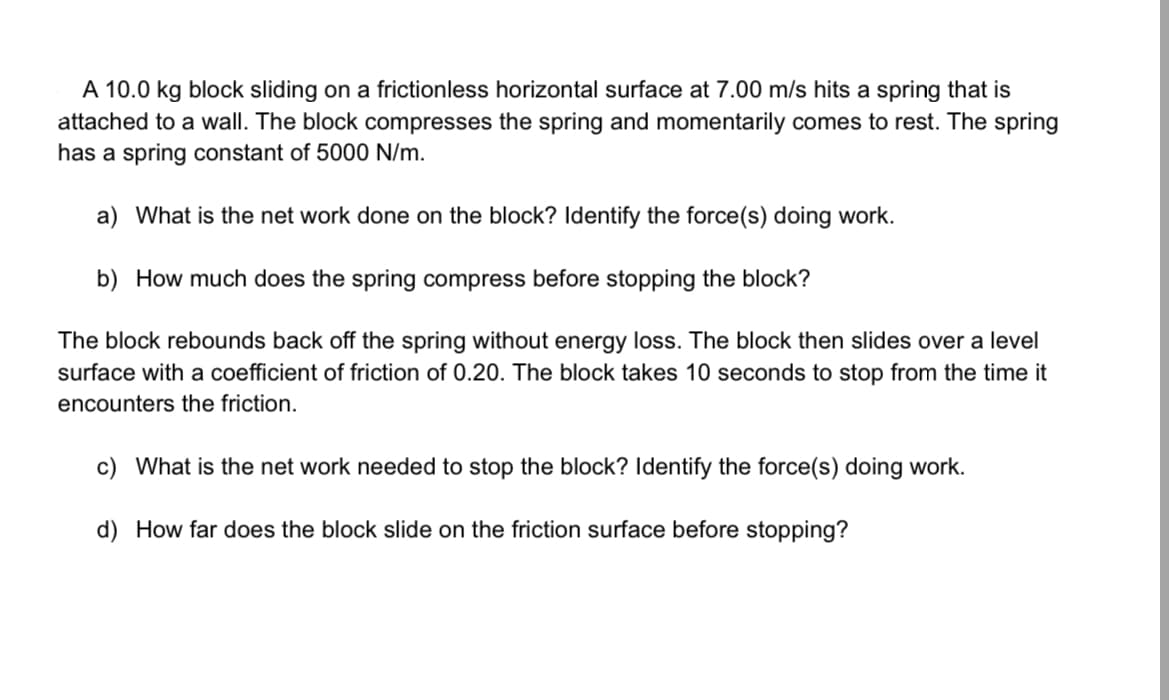A 10.0 kg block sliding on a frictionless horizontal surface at 7.00 m/s hits a spring that is attached to a wall. The block compresses the spring and momentarily comes to rest. The spring has a spring constant of 5000 N/m. a) What is the net work done on the block? Identify the force(s) doing work. b) How much does the spring compress before stopping the block? The block rebounds back off the spring without energy loss. The block then slides over a level surface with a coefficient of friction of 0.20. The block takes 10 seconds to stop from the time it encounters the friction. c) What is the net work needed to stop the block? Identify the force(s) doing work. d) How far does the block slide on the friction surface before stopping?
A 10.0 kg block sliding on a frictionless horizontal surface at 7.00 m/s hits a spring that is attached to a wall. The block compresses the spring and momentarily comes to rest. The spring has a spring constant of 5000 N/m. a) What is the net work done on the block? Identify the force(s) doing work. b) How much does the spring compress before stopping the block? The block rebounds back off the spring without energy loss. The block then slides over a level surface with a coefficient of friction of 0.20. The block takes 10 seconds to stop from the time it encounters the friction. c) What is the net work needed to stop the block? Identify the force(s) doing work. d) How far does the block slide on the friction surface before stopping?
Related questions
Question
If someone could explain this, it would help a lot! Thank you!

Transcribed Image Text:A 10.0 kg block sliding on a frictionless horizontal surface at 7.00 m/s hits a spring that is
attached to a wall. The block compresses the spring and momentarily comes to rest. The spring
has a spring constant of 5000 N/m.
a) What is the net work done on the block? Identify the force(s) doing work.
b) How much does the spring compress before stopping the block?
The block rebounds back off the spring without energy loss. The block then slides over a level
surface with a coefficient of friction of 0.20. The block takes 10 seconds to stop from the time it
encounters the friction.
c) What is the net work needed to stop the block? Identify the force(s) doing work.
d) How far does the block slide on the friction surface before stopping?
Expert Solution
This question has been solved!
Explore an expertly crafted, step-by-step solution for a thorough understanding of key concepts.
This is a popular solution!
Trending now
This is a popular solution!
Step by step
Solved in 2 steps
